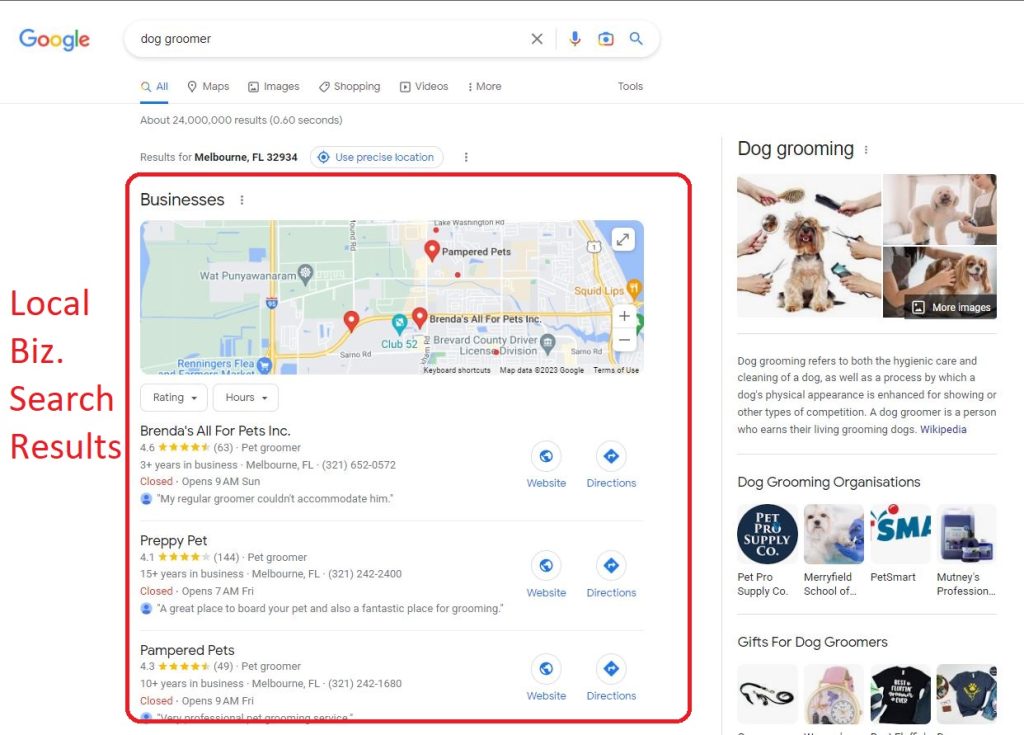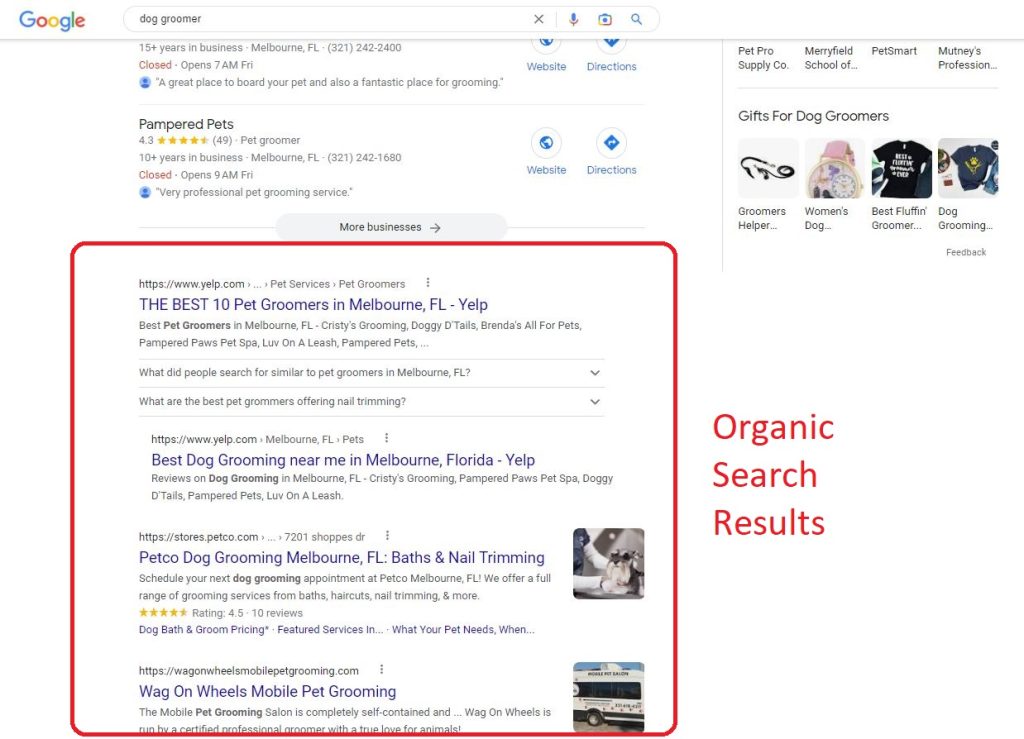How Google Ranks Businesses in the Local Business Search Results Section
- February 02, 2023
- Bradley Taylor
Google uses a combination of factors to rank local businesses in its search results. Here are some of the key factors that Google considers:
- Relevance: Google wants to show the most relevant results for a user’s search query. To determine relevance, Google considers factors such as the proximity of the business to the searcher’s location, the categories of the business, and the keywords used in the search query.
- Distance: Google gives priority to businesses that are closer to the searcher’s location. The proximity of the business to the searcher is a major factor in determining its ranking in the local search results.
- Prominence: Google considers how well-known a business is and its overall online presence to determine its prominence. For example, businesses with a lot of positive reviews, a large number of citations, and a strong social media presence are considered to have high prominence.
- Categories: Google uses the categories listed on a business’s Google My Business (GMB) profile to understand what the business does and to match it with relevant search queries.
- Keywords: Google matches the keywords in a search query to the information on a business’s GMB profile, including the business name, address, phone number, and categories.
- Quality and Relevance of Business Information: Google values accurate and up-to-date information about a business. A business’s GMB profile should include accurate information about the business’s name, address, phone number, website, hours of operation, and photos.
- User Reviews: User reviews play a significant role in how Google ranks local businesses. Google wants to show the best businesses to its users, and user reviews are a key factor in determining which businesses are the best. In our experience we have found this to be one of the most important factors for where you rank in the local business search results section.
- Link Signals: Google considers the number and quality of links pointing to a business’s website as a signal of its prominence and relevance.
In conclusion, Google uses a combination of relevance, distance, prominence, categories, keywords, quality and relevance of business information, user reviews, and link signals to rank local businesses in its search results. By ensuring that their GMB profiles are complete, accurate, and up-to-date, businesses can improve their chances of appearing at the top of the local search results.

Organic vs Local Business Search Results
The main difference between the organic search results and the local business search results is the type of information being searched for. The organic search results show websites that provide information on a wide range of topics, while the local business search results show businesses that are located near the searcher.
In the organic search results, websites are ranked based on factors such as relevance, content quality, and backlinks. In the local business search results, businesses are ranked based on factors such as proximity, prominence, and categories.
The ranking of a website in the organic search results is typically shown as a blue link on the search results page, while the ranking of a business in the local business search results is typically shown with a map and a list of businesses, along with their addresses, phone numbers, and website links.

What % of Click Go to Local Business Search Results vs. Organic Search Results?
Studies have shown that local business listings in Google’s local search results tend to receive a higher click-through rate (CTR) compared to traditional organic search results. This is because local business listings typically show up at the top of the search results page and include more information, such as the business name, address, phone number, and customer reviews.
In general, the CTR for local business listings can be anywhere from 30-50%, while the CTR for organic search results can be around 10-20%. However, these numbers can vary greatly depending on the specific search query and the competition for those search terms.
It’s important to note that both organic search results and local business listings play an important role in driving traffic to websites, and both can contribute to the overall online visibility and success of a business.



